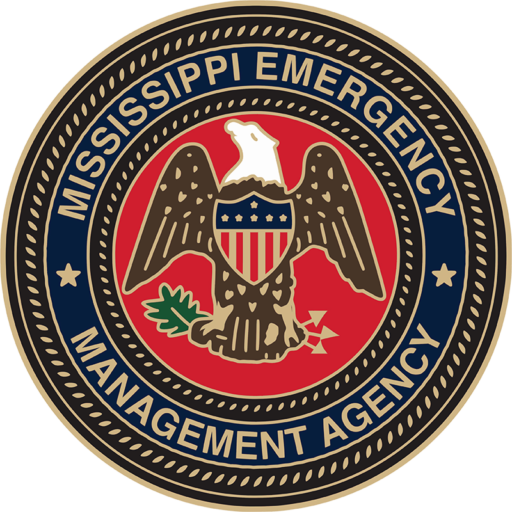Be Prepared
What is a flood?
Flooding can happen anywhere, anytime. Mississippi ranks eighth in the nation for the number of repetitive loss-structures. The state also has more than 5 million acres classified as floodplain, which is the fifth largest in the nation.
Floods can be slow or fast-rising but generally develop during a period of days . Taking precautions now, such as engaging in floodplain management activities, constructing barriers and purchasing flood insurance will help reduce the amount of structural damage to your home and property should a flood occur.
Take these steps now before a flood occurs:
- Purchase flood insurance. You can obtain flood insurance through your insurance company. Flood insurance is guaranteed through the National Flood Insurance Program.
- Take photographs and/or videos of all your important possessions. If a flood damages your home, these items will help you file your flood insurance claim. Take these photos or videos with you if you evacuate.
- Store important documents and irreplaceable personal objects where they won’t be damaged. If a major flood is expected, consider putting these items in a storage facility.
- Plan and practice a flood evacuation route with your family.
- Have an out-of-state relative or friend serve as your family contact person, and make sure everyone in your family knows the contact person’s name, address and phone number.
- Buy and install a sump pump with backup power.
- Have an electrician raise electric components such as sockets, switches and circuit breakers at least 12 inches above your home’s projected flood elevation
- Install backflow valves or plug for your drains, toilets and sewer connections.
- Anchor fuel tanks so they will not be torn free by floodwaters.
Take these steps if floodwaters are rising:
- Fill sinks, bathtubs and jugs with clean water in case water becomes contaminated.
- Listen to a battery-operated radio for the latest storm information.
- If local authorities instruct you to turn off all utilities and close your main gas valve, do so immediately.
- If told to evacuate your home, do so immediately.
- If water starts to rise inside your house before you evacuate, retreat to the second floor, attic or your roof if necessary.
- If you come in contact with floodwater, wash your hands with soap and disinfected water. Floodwater may carry raw sewage, chemical waste and other infectious substances.
- Avoid walking through floodwater. As little as six inches of moving water can knock you off your feet.
- Never drive through a flood area or rising water.
- Avoid downed power lines because electric currents pass easily through water.
- Look out for animals, especially snakes. Animals lose their homes in floods too.
